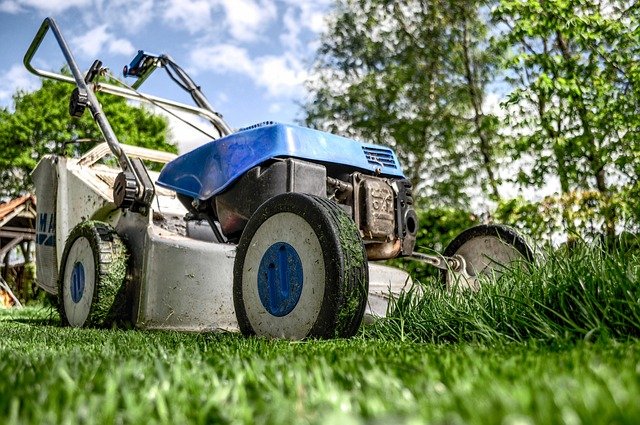Learn About Lawn Mowers: Essential Insights for Choosing the Right Type and Maintenance Tips
Learning about lawn mowers is essential for homeowners aiming to achieve a pristine lawn. By understanding the differences between electric and gas lawn mowers, you can make informed decisions that suit your yard's needs. Electric models offer quiet, eco-friendly options perfect for smaller spaces, while gas mowers provide robust power ideal for larger lawns. Regardless of your choice, regular maintenance is key to maximizing performance.

Choosing the right lawn mower involves more than picking the first model you see at a hardware store. The market offers numerous options, each designed for specific lawn sizes, terrain types, and user preferences. Understanding these differences ensures you select equipment that matches your needs while staying within budget and maintenance capabilities.
What Are the Main Types of Electric Landscaping Equipment?
Electric landscaping equipment has gained significant popularity due to environmental concerns and technological advancements. These tools operate using either corded electricity or rechargeable batteries, offering quieter operation and reduced emissions compared to gas-powered alternatives. Electric mowers suit small to medium-sized lawns, typically up to half an acre, and require minimal maintenance since they lack engines with oil changes and spark plug replacements. Battery-powered models provide greater mobility without cord limitations, though runtime depends on battery capacity and lawn conditions. Many homeowners appreciate the reduced noise levels, making early morning or late evening mowing more neighbor-friendly. However, electric models may struggle with thick, overgrown grass or wet conditions where gas mowers excel.
How Do Kubota Mowers Compare to Other Brands?
Kubota mowers represent the professional-grade segment of lawn care equipment, known for durability and performance in demanding conditions. These machines typically feature robust construction, powerful engines, and advanced cutting systems designed for commercial landscaping or large residential properties. Kubota offers zero-turn mowers, stand-on models, and traditional riding mowers with various deck sizes ranging from 48 to 72 inches. Their engineering focuses on operator comfort during extended use, incorporating ergonomic controls and suspension seats. While Kubota equipment carries premium pricing compared to consumer-grade alternatives, the investment reflects commercial-quality components and longer service life. Many landscaping professionals choose Kubota for reliability and dealer support networks that provide parts and service access. For homeowners with several acres or those seeking commercial-grade performance, Kubota mowers deliver consistent results across diverse terrain and grass types.
Are Allpower Mowers Suitable for Residential Use?
Allpower mowers cater primarily to budget-conscious consumers seeking basic lawn maintenance solutions without premium features. These machines typically include push mowers, self-propelled models, and entry-level riding mowers designed for small to medium residential lawns. Allpower focuses on affordability while providing essential cutting functions, making their products accessible to first-time homeowners or those with modest lawn care needs. The brand offers both gas and electric options, with straightforward controls and simple maintenance requirements. While lacking advanced features found in higher-priced competitors, Allpower mowers perform adequately for regular mowing schedules on relatively flat terrain. Users should consider their long-term needs, as budget models may require more frequent replacement compared to mid-range or premium alternatives. For occasional use on smaller properties, Allpower provides functional equipment at competitive price points.
What Should You Know About Cordless Lawn Mowers on Sale?
Cordless lawn mowers on sale present opportunities to acquire battery-powered equipment at reduced prices, but buyers should evaluate several factors before purchasing. Sale events often occur during seasonal transitions, particularly late fall and early spring, when retailers clear inventory for new models. When considering discounted cordless mowers, examine battery voltage, typically ranging from 40V to 80V, as higher voltages generally provide longer runtime and better cutting power. Check whether batteries and chargers are included, since purchasing these separately can significantly increase total cost. Runtime specifications matter greatly, with most cordless mowers operating 30 to 60 minutes per charge depending on grass thickness and lawn conditions. Look for models with brushless motors, which offer improved efficiency and durability compared to brushed alternatives. Warranty coverage remains important even for sale items, protecting against manufacturing defects. Compare sale prices against regular pricing to ensure genuine savings rather than inflated discounts.
How Does the Greenworks Lawn Mower Perform?
Greenworks lawn mower models have established a strong reputation in the battery-powered equipment market, offering various options from push mowers to riding models. The brand emphasizes environmental sustainability while delivering performance comparable to gas-powered alternatives. Greenworks utilizes lithium-ion battery technology across their product line, with voltage options ranging from 40V for push mowers to 60V and 80V for riding models. Their mowers feature steel cutting decks in sizes from 16 to 25 inches for walk-behind models and up to 42 inches for riding mowers. Many Greenworks models include adjustable cutting heights, mulching capabilities, and rear bagging options for versatile lawn care. The brand’s battery system allows interchangeability across multiple tools, enabling users to power different equipment with the same batteries. Performance reviews generally praise Greenworks for quiet operation, ease of use, and adequate power for typical residential lawns. Maintenance requirements remain minimal, primarily involving blade sharpening, deck cleaning, and battery care.
Comparing Popular Mower Options and Cost Considerations
Understanding pricing across different mower categories helps establish realistic budgets for lawn care equipment. The following table provides general cost estimates for various mower types and brands, though actual prices vary based on features, retailer, and market conditions.
| Mower Type | Brand Example | Key Features | Cost Estimation |
|---|---|---|---|
| Cordless Push Mower | Greenworks 40V | 16-21 inch deck, battery-powered, lightweight | $250-$450 |
| Cordless Self-Propelled | Greenworks 60V | 21 inch deck, variable speed, extended runtime | $400-$650 |
| Gas Push Mower | Allpower | 21 inch deck, basic features, manual start | $150-$300 |
| Gas Self-Propelled | Mid-range brands | 21 inch deck, variable speed, side discharge | $300-$600 |
| Electric Riding Mower | Greenworks 60V | 42 inch deck, zero-turn or traditional | $3,000-$5,500 |
| Commercial Zero-Turn | Kubota | 48-60 inch deck, commercial-grade components | $8,000-$15,000 |
Prices, rates, or cost estimates mentioned in this article are based on the latest available information but may change over time. Independent research is advised before making financial decisions.
Essential Maintenance Tips for Lawn Mower Longevity
Proper maintenance extends mower lifespan and ensures consistent performance throughout the mowing season. For gas-powered models, regular oil changes every 25-50 hours of operation prevent engine wear and maintain efficiency. Air filter cleaning or replacement keeps engines running smoothly, while spark plug inspection ensures reliable starting. Blade sharpening at least twice per season produces clean cuts that promote healthier grass growth, as dull blades tear rather than slice grass blades. Electric and battery-powered mowers require less maintenance but benefit from regular blade sharpening and deck cleaning to prevent grass buildup. Battery care involves proper storage during off-seasons, maintaining partial charges rather than complete depletion, and keeping batteries at moderate temperatures. Inspect wheels and height adjustment mechanisms for smooth operation, lubricating moving parts as needed. Clean mower decks after each use to prevent corrosion and grass accumulation that reduces cutting efficiency. Store mowers in dry, protected locations to minimize weather-related deterioration. Following manufacturer maintenance schedules outlined in owner manuals ensures warranty compliance and optimal performance.
Selecting appropriate lawn care equipment and maintaining it properly creates efficient, cost-effective lawn management systems. Whether choosing electric landscaping equipment for environmental benefits, commercial-grade Kubota mowers for demanding applications, budget-friendly Allpower models for basic needs, or taking advantage of cordless lawn mowers on sale, understanding your specific requirements guides informed decisions. Greenworks lawn mower options demonstrate how battery technology continues advancing, offering viable alternatives to traditional gas-powered equipment. Regular maintenance practices protect your investment while ensuring reliable performance season after season.




